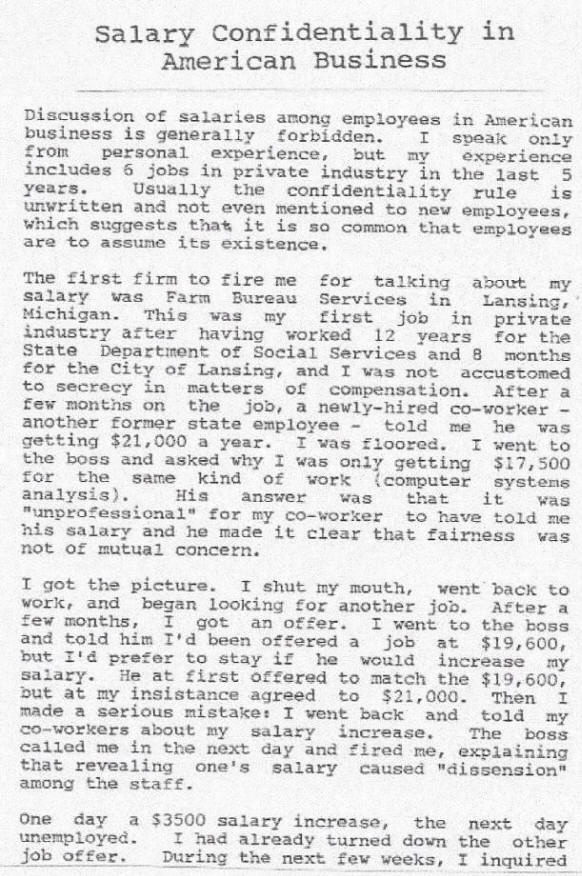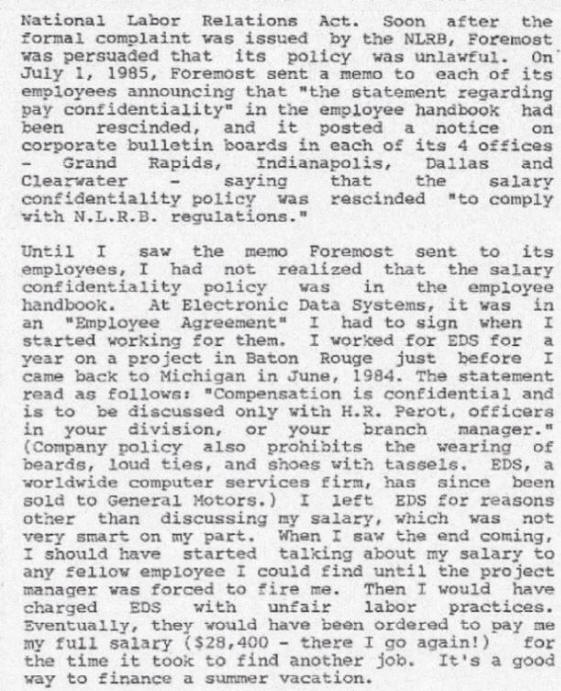|
Salary confidentiality in American
business
Originally posted April 15, 2014;
updated May 24, 2015
|
Home
Directory
|
The following story appeared in the
Tampa Bay Times on April 9. I think it was from the Associated
Press.
President Barack Obama on Tuesday
signed two executive measures intended to help close
long-standing pay disparities between men and women as Democrats
seek to capitalize on their gender-gap advantage at the ballot
box in a midterm election year. Obama, standing in front of a
platform of women in a picture-ready ceremony in the East Room
of the White House, said his actions would make it easier for
women to learn whether they had been cheated by employers.
Neither of the actions Obama took would affect the broad U.S.
workforce. The executive order he signed
bars federal
contractors from retaliating against employees who discuss their
salaries and an executive memorandum he issued instructs the
Labor Department to collect statistics on pay for men and women
from such contractors.
Someone should tell the president that
retaliation against employees in private industry who discuss their
salaries has been prohibited by federal law since 1935. That law is
the National Labor Relations Act. I know because I got fired twice
back in the 1980s for revealing my salary to co-workers. Each time,
I filed a complaint with the National Labor Relations Board. Each
time, the board ruled in my favor.
The following is from a 1980 newsletter called
White Collar Management, published by Business Research
Publications, Inc. of Plainview, NY. The page it appears on is
here.
Many employers erroneously assume
that the National Labor Relations Act solely involves
unionization activities. Actually, any "concerted activity" by
employees to improve their conditions is protected. That goes
for salaries, vacations, hours of work, sanitation, parking
privileges and the like.
In 1986, I wrote this about my
experience:



Disciplining an
employee for disclosing his salary is against Michigan law, too.
This is from the
Payment of Wages and Fringe Benefits Act:
408.483a Prohibited
conduct.
Sec. 13a. (1) An employer shall not do any of the following:
(a)
Require as a condition of employment nondisclosure by an employee of
his or her wages.
(b)
Require an employee to sign a waiver or other document which
purports to deny an employee the right to disclose his or her wages.
(c)
Discharge, formally discipline, or otherwise discriminate against
for job advancement an employee who discloses his or her wages.
|


